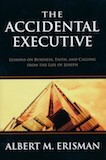Books on Work: Die Empty by Todd Henry
Blog / Produced by The High Calling
I know I’ve said it before. Perhaps you have too.
“When the end comes you never hear anyone expressing regrets that they didn’t spend enough time at work.”
Author Todd Henry believes this is a dangerous way to think.
“First, I believe a great many people do regret not having treated their life with more purpose, and would give anything to have one more chance to approach it with the kind of intention and conviction that imminent death makes palpable … Second, this saying presupposes that work is an inherently miserable act that people engage in against their will, or that it’s something that necessarily pulls us away from the people and activities we really care about. But work encompasses much more than just how we make a living … Humans, it seems, are wired to find satisfaction by adding value through toil … I believe that the more you apply self-knowledge to how you engage your labor, the more satisfaction you will find in the very act of work, and thus the more joy you will find in life.”
That’s what Henry wants to teach us to do through his new book Die Empty: Unleash Your Best Work Every Day. His goal in writing Die Empty is help “bring a newfound clarity and sense of urgency to how you approach your work on a daily basis, and over your lifetime.” This just happens to be something we deeply believe in here at The High Calling and we are excited to be discussing Die Empty on Monday mornings in November. Today, we’re covering chapters one through three.
Henry tells the story of a friend who asked him and some others an unusual question.
“What do you think is the most valuable land in the world?”
After several guesses the friend informed them all that they were wrong. “The most valuable land in the world is the graveyard,” he said. “In the graveyard are buried all of the unwritten novels, never-launched businesses, unreconciled relationships, and all of the other things that people thought, ‘I’ll get around to that tomorrow.’ One day, however, their tomorrows ran out.”
That talk birthed a new resolve in Henry to empty himself every day—to pour himself into his work and live with no regrets. That day he wrote down two words to help guide him in this process: Die empty.
Henry defines work as “any instance where you make an effort to create value where it didn’t previously exist.” This covers a lot of territory and leaves no one out of the discussion. Henry believes that the way we do our work greatly impacts the way we do life over all, and this is true whether you are the CEO of a Fortune 500 company or a grandfather baking cookies with his grandchildren.
In order to unleash our creativity every day, we must first understand the nature of work better. Henry tells us there are three forms of work: Mapping, Making, and Meshing.
Mapping is just what it sounds like—planning that must be done before the work actually begins.
Making is the doing something with the plans—it’s the actual work.
Meshing is “the work between the work." It consists of the investments we make in ourselves to help grow and learn new skills.
In order to be effective, we must be intentional about all three of these types of work. Henry identifies four different profiles of workers based on how they engage these three different types of work: Developer, Driver, Drifter, and Dreamer.
The Developer engages in and recognizes the importance of all three types of work.
The Driver focuses on Mapping and Making but ignores Meshing.
The Drifter enjoys the processes of Making and Meshing, but she is a poor planner and thus neglects Mapping.
And the Dreamer, while investing in Meshing and Mapping, has little work ethic to do the actual Making.
Which one are you? To die empty, Henry says, we must all become a Developer. In the coming weeks we’ll learn some strategies to boost us along that path. Hint: avoid mediocrity.
Image by Zach Stern. Used with permission. Sourced via Flickr.





